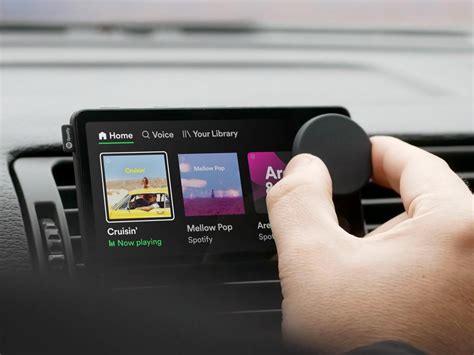The recent announcement that Spotify will be rendering its Car Thing devices obsolete in December has sparked a heated debate among tech enthusiasts and consumers alike. The decision, which entails bricking the devices without providing refunds, has not only angered users but has also rekindled discussions around ownership rights, e-waste, and the responsibilities of tech companies. In an age where digital dependency is ubiquitous, such a move by a major player like Spotify cannot be overlooked.
One of the most prominent issues brought up by the community is the matter of ownership. As one commentator poignantly put it: ‘**You might incorrectly assume you owned the device you bought.**’ This sentiment resonates deeply in an era where companies often maintain control over their products even after they have been sold. When consumers purchase hardware, they naturally expect to have full control over its lifecycle. Unfortunately, the precedent set by Spotify suggests otherwise, revealing a stark reality where users are merely renting the functionality of their devices.
The economic and market positioning of the Car Thing also comes into question. Commentators highlighted that the device was somewhat aimed at a niche market––users without CarPlay or Android Auto who nevertheless had a good smartphone data plan and a Spotify Premium subscription. A user aptly noted, **’Someone already paying for Spotify and practically any smartphone can just buy a car mount and get pretty much the same experience.’** This encapsulates the product’s awkward fit in the market, serving a small, specific segment that may not justify the development and support costs for Spotify.
Another pertinent point raised is the question of maintenance and **why such drastic measures are needed in the first place**. One theory offered by a commenter was that the bricking could be tied to digital rights management (DRM) concerns, aimed at preventing the interception and capture of digital audio data. This raises issues about the ongoing costs associated with maintaining such devices, involving DevOps, monitoring, support, and security updates. The complexity and expense of keeping a bespoke device updated in a rapidly evolving tech environment could be the reason Spotify chose to discontinue support altogether.
From a technical standpoint, the Car Thing’s bricking decision also opens up a can of worms regarding the potential of open-sourcing the device. As suggested, **’Remind me why I shouldn’t be able to put my own version of Android on this again?’** This rhetorical question underlines the fact that, by not open-sourcing the software, Spotify effectively stifles community efforts to breathe new life into these devices. In a world where e-waste is a growing environmental issue, such actions seem shortsighted and irresponsible.
Many users have called for legislation to protect consumers. The thread discusses the idea that companies should be required to unlock bootloaders and provide necessary documentation once a product reaches its end-of-life. Such legislation would empower consumers to repurpose their devices, significantly reducing e-waste. While some argue that maintaining security for connected devices necessitates continuous updates, **others counter that current practices allow companies to exert excessive control**, often at the expense of the consumers’ interests.
Beyond the immediate case of the Car Thing, this issue touches on broader **consumer protection failures**. As one commenter from the UK pointed out, unlike the US, UK consumer protection laws typically ensure that products work for a ‘reasonable’ period, and failure to do so would entitle consumers to a refund or replacement. This discrepancy highlights a significant gap in consumer rights between regions, underscoring the need for more robust protections globally.
The concept of ‘right to repair’ becomes more relevant in this context. It’s an idea that’s gaining traction as consumers demand more autonomy over devices they legally own and have paid for. The idea of permanently locking bootloaders and withholding technical details, even when a company no longer profits from the device, rings alarm bells for many. As suggested in the comment thread, **legislation needs to adapt** and ensure that companies can no longer make unilateral decisions that convert fully functional devices into useless bricks.
In conclusion, Spotify’s move to brick the Car Thing drives home an important lesson about the responsibilities that come with technological advancement. As we navigate the digital age, it’s crucial for companies to balance profitability with ethical considerations, ensuring that consumers’ rights are upheld and environmental impacts are minimized. The collective outcry from the community underscores the need for change, beckoning lawmakers and tech giants to re-evaluate their practices. The lesson here is simple: technological progress must not come at the cost of consumer trust and environmental sustainability.


Leave a Reply